Reflection on GLOBELT Conference by Esra Çelik Soydan
- Conference Title: GLOBELT
- Presentation Title: Extra/co-curricular language development activities in a university context: “What to offer?” and “How to promote”?
- Presenter: Esra Çelik Soydan
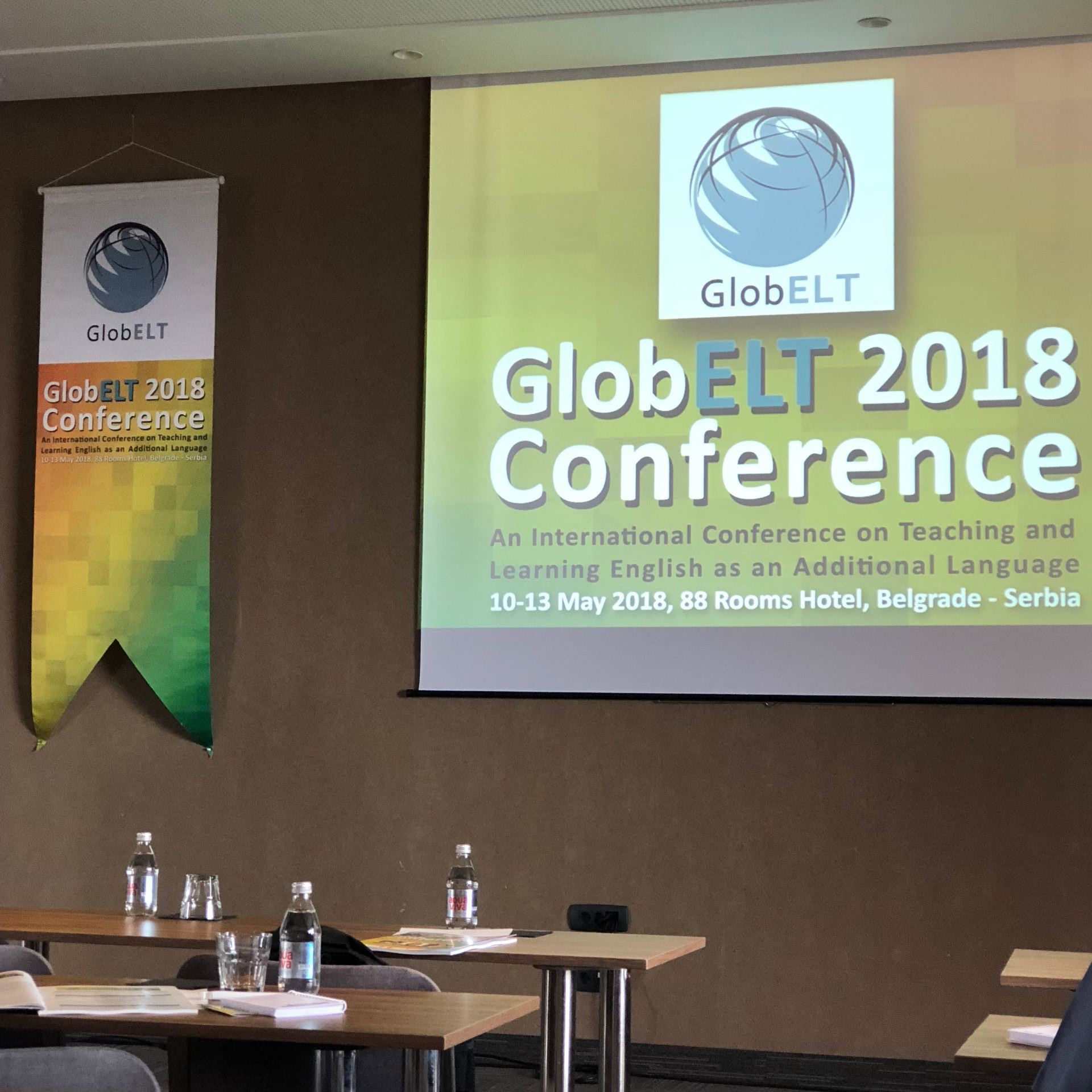
Brief information about the conference (location, the theme(s), keynote speaker(s), the length, etc.):
The GlobELT 2018 conference is an international conference on teaching and learning English as an additional language. It is organised to provide a high quality academic platform for the communities of EFL/ESL/ELT and the allied sciences to promote connections between theory and practice, and explore different perspectives on the application of research findings into different practices. This year, it was held in Belgrade, Serbia between 10 and 13 May, 2018.
Plenary Speakers:
Mehmet Demirezen: The Relation of Pausing in English Sentence Types in Teacher Education
In this speech, the importance of right pausing for the effective communication was analyzed through examples, such as;
“The woman, without her man, is nothing.” and “The woman, without her, man is nothing.”
There were some examples used to make it clear that pausing changes meaning. According to the speaker, this aspect is not paid enough attention in EFL teacher education, but it should be.
He concluded with sample exercises and assignments to be given to the students.
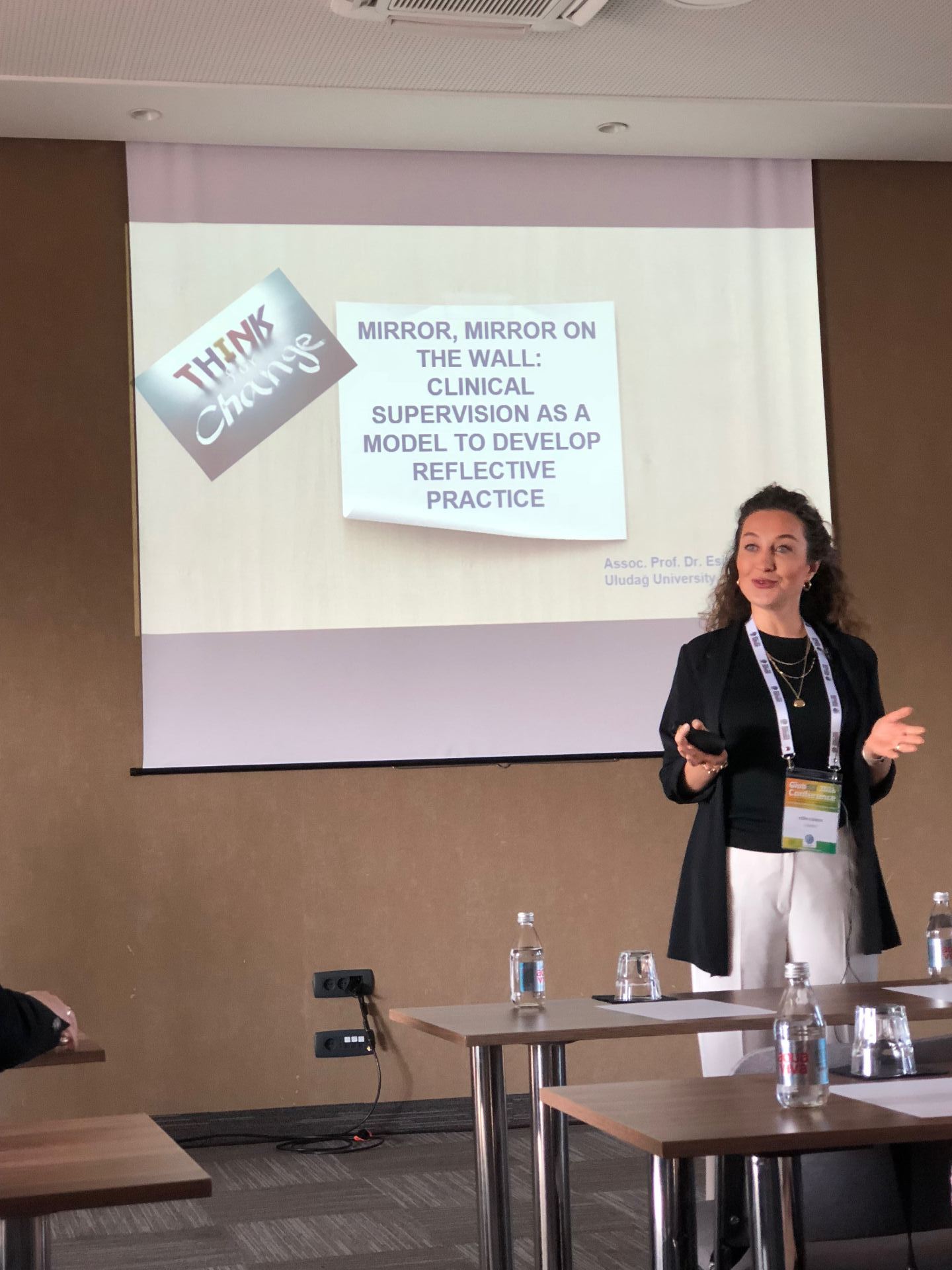 Esim Gürsoy: Mirror, mirror on the wall: Clinical supervision as a model to develop reflective practice
Esim Gürsoy: Mirror, mirror on the wall: Clinical supervision as a model to develop reflective practice
The speaker started with the analysis of “reflection in action” and “reflection on action” and continued with the importance of reflection on action due to its collaborative nature including mentor/supervisor and the mentee. She highlighted the importance of this collaboration for effective reflection and the need to improve this collaboration during the internship period at universities. As a group, they have been working on this improvement process and they have already trained school teachers from all the cities in Turkey on the techniques used in clinical supervision.
The session was refreshing and attention grabbing thanks to the videos used and the effective delivery of the speaker.
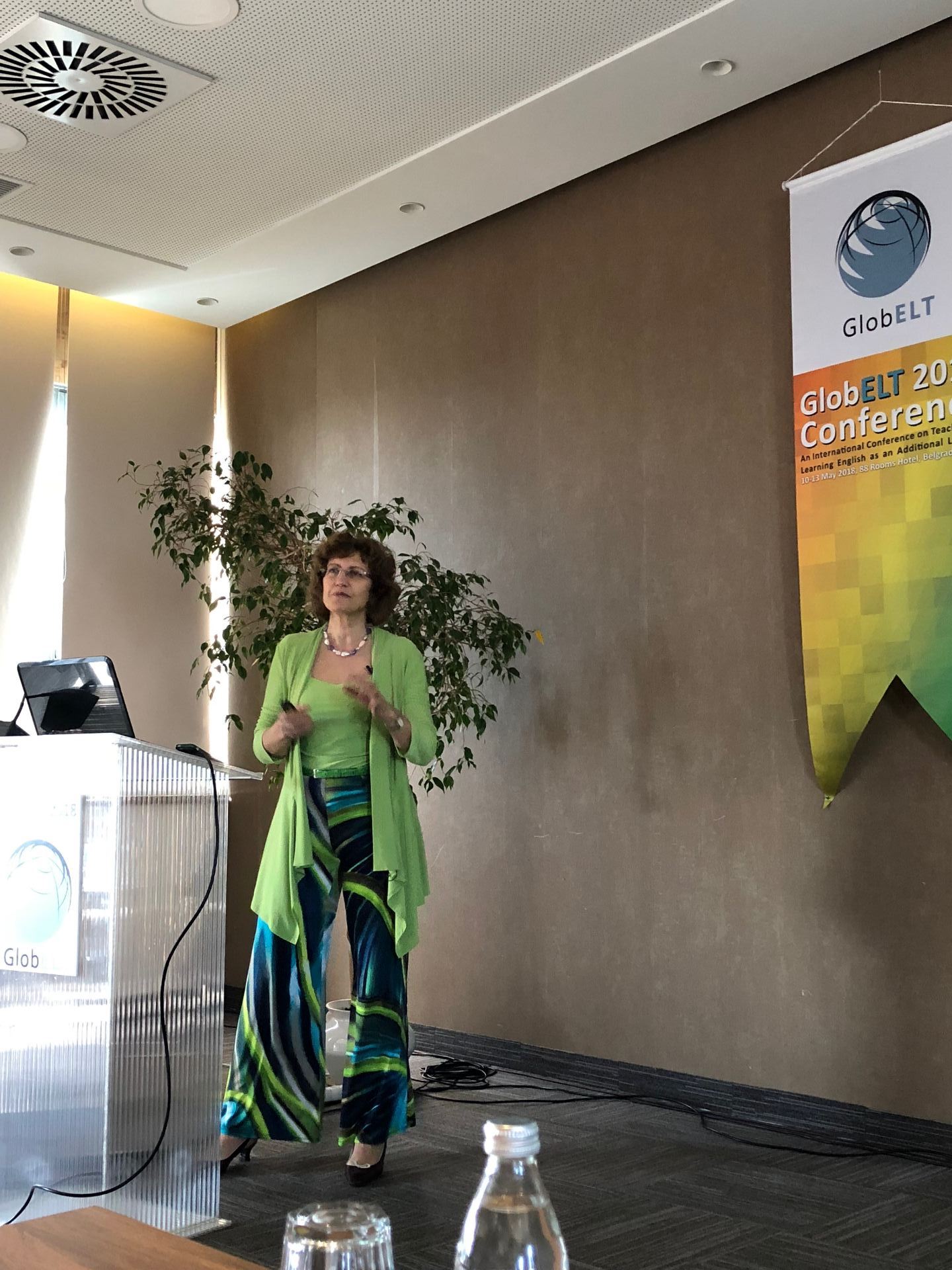 Enrica Piccardo: Exploring the hidden part of the ice-berg: The new CEFR companion volume and the action oriented approach
Enrica Piccardo: Exploring the hidden part of the ice-berg: The new CEFR companion volume and the action oriented approach
The speaker started with a brief information about CEFR in laying the foundations for innovation in language education and the innovative aspects of the CEFR 2001. She, then, continued with the new descriptors in CEFR Companion Volume (CV) 2018. Mainly, the function of the companion volume will be updating the CEFR, completing the CEFR, broadening the CEFR concepts (mediation), refining pedagogical vision (Action-oriented Aproach), and developing constructs (phonology and pluri). In this companion volume, they aim at making the CEFR principles and concepts more accessible, providing guidance through rationales, highlighting and expanding aspects of the CEFR relating to the complexity theory, the socio-cultural approach, the ecological approach and the intercultural/plurilingual dimension, supporting further innovation (plurilingualism and mediation + strategies), and fostering social justice (transparency, quality education).
Brief information about my presentation:
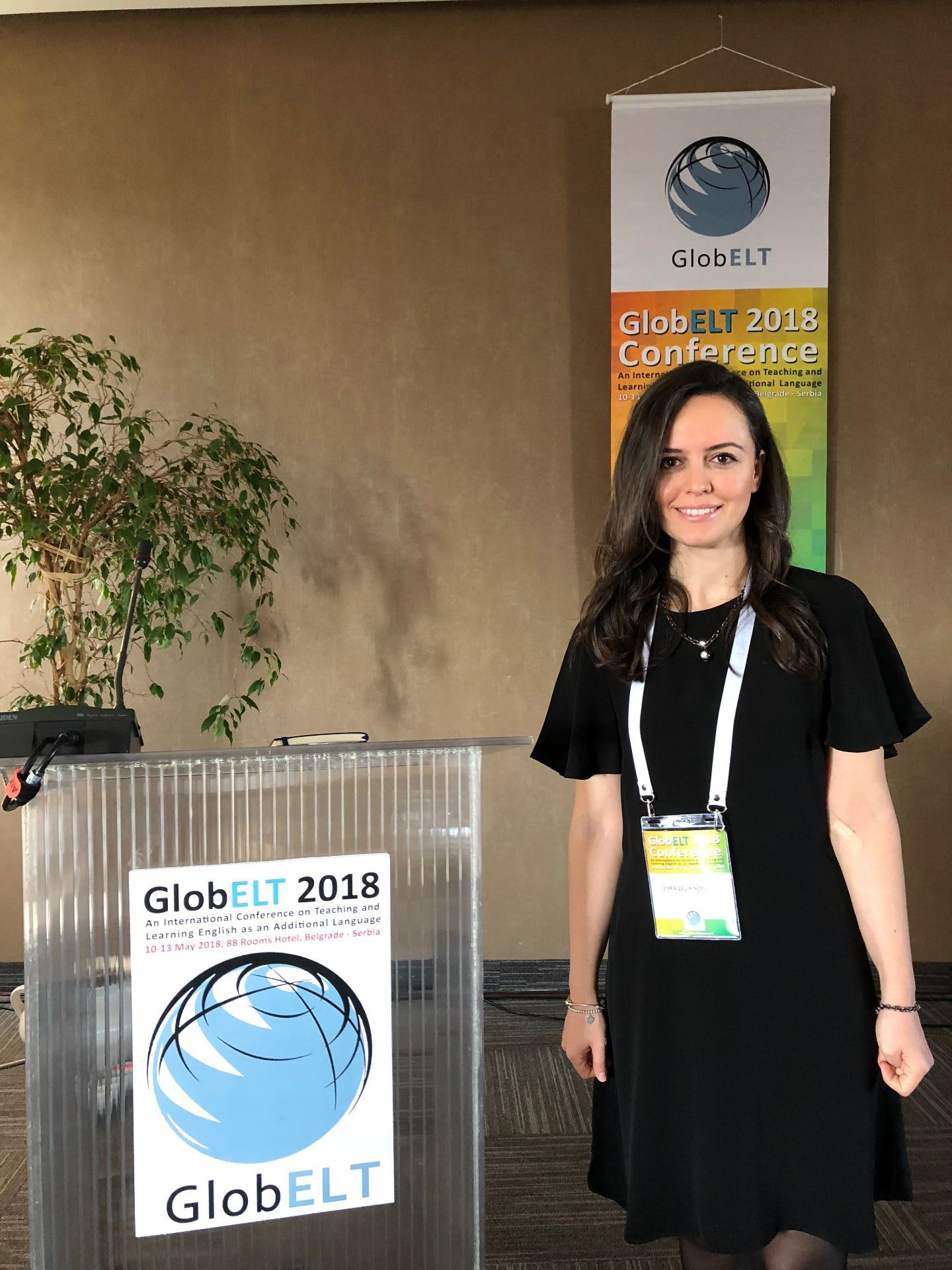
Abstract of my presentation:
In non-English speaking countries like Turkey students have limited opportunities of being exposed to English except their formal classes despite the ample time they have outside. Since outside-class study is claimed to be a contributor to learner autonomy and skill development (Pearson, 2004) as well as language development (Pickard, 1996), it is important that English preparatory schools offer effective extra/co-curricular language development activities. However, our knowledge regarding such activities is limited since researches mainly focus on in-class teaching and learning (Benson & Reinders, 2011; Pickard, 1996). To that end, this longitudinal study aimed at investigating the effectiveness of the extra/co-curricular language development activities offered by an English preparatory school in İstanbul, Turkey. The first phase of the study, together with the descriptive analysis of the number of participants, was the qualitative exploration of their effectiveness. Data was collected from the students through open-ended questionnaires and focus group meetings. Findings showed that although the students attending these activities reported them effective, most of the students were not fully informed of them and their content despite various channels these activities were promoted through. Following the first phase, necessary actions, such as changing the mode of promotion and adding variety to the activities, were taken. To evaluate the effectiveness of them, the replication of the first phase was completed one year later. The findings are expected to guide English-medium universities by demonstrating the types of activities to be provided and how to promote them effectively.
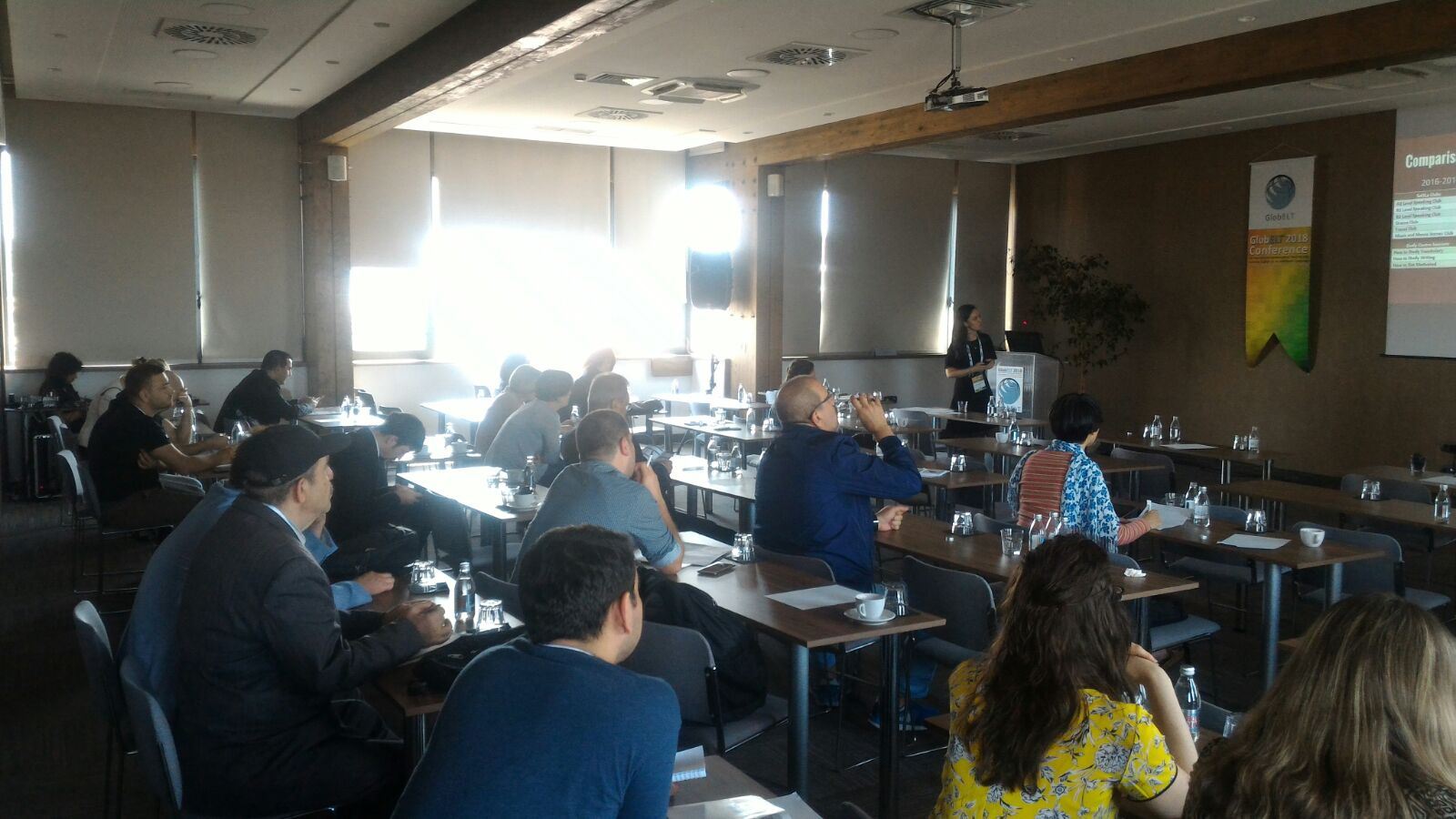

Leave a Reply